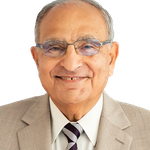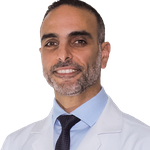

















Phaco + Monofocal Lens (by Alcon or J&J) costs $700 per eye
Phaco + Toric Lens (by Alcon or J&J) costs $800 1 eye per eye
Phaco + premium Multifocal Lens (Vivity or PanOptix) costs $1600 per eye
Cataract Surgery with Premium IOLs:
Before, During, and After
Cataract surgery is a routine procedure to remove the clouded natural lens of your eye
(cataract) and replace it with an artificial lens (intraocular lens, IOL). Standard IOLs typically
correct distance vision only, requiring patients to rely on glasses or contacts for near-vision
tasks like reading. Premium IOLs, however, offer the possibility of spectacle independence by correcting vision at multiple distances.
Types of Premium IOLs
Premium intraocular lenses (IOLs) offer a range of options beyond standard monofocal lenses, providing
patients with additional benefits such as reduced dependence on glasses for various distances. Here are
the types of premium IOLs commonly used in cataract surgery:
1. Toric IOLs:
• Design: Toric IOLs are designed to correct astigmatism, a common refractive error
caused by an irregularly shaped cornea or lens. These lenses have different powers in
different meridians of the lens to counteract the astigmatism and provide clearer vision.
• Types: Toric IOLs can be monofocal, meaning they correct vision at one distance (usually
distance vision), or they can be combined with other technologies like multifocality or
extended depth of focus (EDOF) to provide a broader range of vision correction.
2. Multifocal IOLs:
• Design: Multifocal IOLs are designed with multiple focal points, allowing patients to see
clearly at different distances simultaneously.
• Advantages: They can provide clear vision for both near and distant objects, reducing
the need for reading glasses or bifocals.
• Considerations: Some patients may experience halos, glare, or reduced contrast
sensitivity, especially in low-light conditions.
3. Trifocal IOLs:
• Design: Trifocal IOLs have three focal points, providing vision correction for near,
intermediate, and distant objects.
• Advantages: They offer a wider range of vision compared to multifocal IOLs, reducing
the reliance on glasses for various activities.
• Considerations: Similar to multifocal IOLs, patients may experience visual disturbances such as halos or glare, particularly in low-light situations.
4. Extended Depth of Focus (EDOF) IOLs:
• Design: EDOF IOLs are designed to extend the range of clear vision without creating
distinct focal points. They achieve this by elongating the focus of light, providing clear
vision over a broader range of distances.
• Advantages: EDOF IOLs aim to provide a smooth transition between near, intermediate,
and distant vision, potentially minimizing visual disturbances like halos and glare.
• Considerations: While EDOF IOLs may offer improved quality of vision, some patients
may still require glasses for certain tasks, particularly for very near work.
Each type of premium IOL has its own set of advantages and considerations, and the choice depends on factors such as the patient's lifestyle, visual preferences, and the surgeon's recommendation. During the pre-operative evaluation, the surgeon will discuss these options with the patient and help determine the most suitable type of premium IOL for their individual needs.
Steps & Precautions:
Cataract surgery with premium intraocular lenses (IOLs) involves several steps and precautions before, during, and after the procedure to ensure optimal outcomes. Here's an overview:
Before Surgery:
1. Pre-surgical Evaluation: Before undergoing cataract surgery, several preoperative investigations and evaluations are typically conducted to assess your candidacy for premium IOLs and determine the most suitable lens type for your needs, including:
• Comprehensive Eye Examination
• Visual Acuity Testing
• Refraction
• Biometry: crucial for calculating the power of the IOL needed for optimal vision correction.
• Corneal Topography: Corneal topography maps the curvature of the cornea's surface and helps detect irregularities such as astigmatism. This information is valuable for selecting the appropriate type of IOL and assessing the risk of postoperative refractive errors.
• Intraocular Pressure Measurement: Measuring intraocular pressure helps screen for conditions such as glaucoma, which may require additional management or influence the choice of surgical technique.
• Dilated Fundus Examination
• Retinal Imaging: In some cases, retinal imaging such as Ocular Coherence Tomography (OCT) is required to detect any pre-existing retinal conditions that may require treatment before cataract surgery.
• Endothelial Cell Count: In patients with pre-existing conditions like Fuchs' endothelial dystrophy, it’s important to perform endothelial cell count before cataract surgery to evaluate the health of the corneal endothelium and assess the risk of corneal decompensation after surgery.
2. Discussion of Options: You'll discuss with your surgeon the various types of premium IOLs available, such as multifocal, toric, or accommodating lenses. Your surgeon will help you choose the best option based on your lifestyle and visual needs.
3. Pre-operative Medications: You'll receive specific instructions regarding medications, such as eye drops to use before surgery.
4. Health Assessment: Your surgeon will review your medical history to ensure you're fit for surgery and to identify any potential risks or complications.
5. Medication Review: The surgeon will review your current medications to identify any medications that may need to be adjusted or discontinued before surgery to reduce the risk of bleeding or other complications.
6. Arranging Transportation: Since you'll likely have dilated pupils and may experience blurry vision immediately after surgery, it's important to arrange for someone to drive you home after the procedure.
During Surgery:
1. Anesthesia: Typically, cataract surgery is performed under local anesthesia with sedation. You'll be awake but relaxed during the procedure. In some cases, general anesthesia may be used.
2. Cataract Removal: The surgeon will make a small incision in the cornea and use ultrasound energy to break up and remove the cloudy lens (cataract) from the eye.
3. IOL Implantation: After removing the cataract, the surgeon will implant the premium IOL through the same incision. Special care is taken to ensure the lens is positioned correctly for optimal visual outcomes.
After Surgery:
1. Recovery Room: After surgery, you'll spend some time in a recovery area where you will be monitored for a short period before being discharged home and any immediate post-operative discomfort will be managed.
2. Eye Shield: You may be given an eye shield to wear for protection and to prevent you from rubbing your eye while it heals.
3. Eye Drops and Medications: You'll be prescribed a regimen of eye drops to prevent infection, reduce inflammation, and promote healing. It's essential to follow your surgeon's instructions regarding medication use.
4. Follow-up Appointments: You'll schedule follow-up appointments with your surgeon to monitor your eye's healing progress and to address any concerns or complications that may arise.
5. Activity Restrictions: Your surgeon may advise you to avoid strenuous activities, swimming, or rubbing your eyes during the initial recovery period to prevent complications.
6. Visual Rehabilitation: It may take some time for your vision to stabilize and for your brain to adjust to the new lens.
7. Routine Eye Care: After recovery, it's important to continue with regular eye exams to monitor your eye health and the performance of your premium IOL.
Precautions:
1. Avoid Rubbing Your Eyes: Rubbing your eyes can increase the risk of infection or dislodging the implanted lens.
2. Protect Your Eyes: Wear sunglasses with UV protection to shield your eyes from harmful sunlight and dust particles during the healing process.
3. Attend Follow-up Appointments: Regular follow-up appointments are crucial for monitoring your eye's healing progress and detecting any complications early on.
4. Report Any Issues: If you experience any sudden vision changes, pain, redness, or discharge from your eye, contact your surgeon immediately.
5. Adhere to Medication Regimen: Follow your surgeon's instructions regarding the use of prescribed eye drops and medications to prevent infection and promote healing.
By following these steps and precautions, you can help ensure a successful outcome from your cataract surgery with premium IOLs. However, always consult with your ophthalmologist for personalized advice and recommendations based on your specific needs and medical history.
What procedures are available at Watany Eye Hospitals in Egypt?
How many medical staff are there at Watany Eye Hospitals in Egypt and what accreditations do they have?
Cataract surgery in Cairo is a common procedure carried out by highly experienced ophthalmologists. This outpatient operation is performed when the natural lens of the eye, which is usually transparent, develops a cataract. The cataract causes the lens to become cloudy, resulting in blurry or desaturated vision. Surgery is necessary when the cataract severely affects your daily activities or your ability to work.
During the procedure, the surgeon removes the cloudy lens and if necessary, replaces it with an artificial clear lens called an intraocular lens (IOL). Modern techniques mean that the entire procedure can typically be performed under local anaesthetic with patients experiencing little to no discomfort. Cataract surgeries in Cairo are renowned for their high standards of care and success.
Recovery times for cataract surgery procedures vary from person to person, but typically, patients notice an improvement in their vision within a few days of the procedure. However, full healing can take about a month.
During the first few days post-operation, the eye may feel itchy and sensitive. It is also common for a mild burning sensation or grittiness to be experienced. Patients are advised not to rub the eye and to use the prescribed eye drops to help with the healing process and reduce inflammation. Complete visual results and the settling down of any post-operative symptoms could take from several weeks to a few months.
The success rate of cataract surgery procedures in Cairo is very high, similar to other developed regions. As a mature and well-established procedure, the percentage of patients with significantly improved vision following cataract surgery is greater than 95%.
However, as with any surgical procedure, there are risks associated. These risks mainly involve infection, bleeding, inflammation, detachment of the retina, pressure changes in the eye and sometimes light sensitivity. Most of these complications are extremely rare and can be managed effectively if they occur.








Phaco + Monofocal Lens (by Alcon or J&J) costs $700 per eye
Phaco + Toric Lens (by Alcon or J&J) costs $800 1 eye per eye
Phaco + premium Multifocal Lens (Vivity or PanOptix) costs $1600 per eye
Cataract Surgery with Premium IOLs:
Before, During, and After
Cataract surgery is a routine procedure to remove the clouded natural lens of your eye
(cataract) and replace it with an artificial lens (intraocular lens, IOL). Standard IOLs typically
correct distance vision only, requiring patients to rely on glasses or contacts for near-vision
tasks like reading. Premium IOLs, however, offer the possibility of spectacle independence by correcting vision at multiple distances.
Types of Premium IOLs
Premium intraocular lenses (IOLs) offer a range of options beyond standard monofocal lenses, providing
patients with additional benefits such as reduced dependence on glasses for various distances. Here are
the types of premium IOLs commonly used in cataract surgery:
1. Toric IOLs:
• Design: Toric IOLs are designed to correct astigmatism, a common refractive error
caused by an irregularly shaped cornea or lens. These lenses have different powers in
different meridians of the lens to counteract the astigmatism and provide clearer vision.
• Types: Toric IOLs can be monofocal, meaning they correct vision at one distance (usually
distance vision), or they can be combined with other technologies like multifocality or
extended depth of focus (EDOF) to provide a broader range of vision correction.
2. Multifocal IOLs:
• Design: Multifocal IOLs are designed with multiple focal points, allowing patients to see
clearly at different distances simultaneously.
• Advantages: They can provide clear vision for both near and distant objects, reducing
the need for reading glasses or bifocals.
• Considerations: Some patients may experience halos, glare, or reduced contrast
sensitivity, especially in low-light conditions.
3. Trifocal IOLs:
• Design: Trifocal IOLs have three focal points, providing vision correction for near,
intermediate, and distant objects.
• Advantages: They offer a wider range of vision compared to multifocal IOLs, reducing
the reliance on glasses for various activities.
• Considerations: Similar to multifocal IOLs, patients may experience visual disturbances such as halos or glare, particularly in low-light situations.
4. Extended Depth of Focus (EDOF) IOLs:
• Design: EDOF IOLs are designed to extend the range of clear vision without creating
distinct focal points. They achieve this by elongating the focus of light, providing clear
vision over a broader range of distances.
• Advantages: EDOF IOLs aim to provide a smooth transition between near, intermediate,
and distant vision, potentially minimizing visual disturbances like halos and glare.
• Considerations: While EDOF IOLs may offer improved quality of vision, some patients
may still require glasses for certain tasks, particularly for very near work.
Each type of premium IOL has its own set of advantages and considerations, and the choice depends on factors such as the patient's lifestyle, visual preferences, and the surgeon's recommendation. During the pre-operative evaluation, the surgeon will discuss these options with the patient and help determine the most suitable type of premium IOL for their individual needs.
Steps & Precautions:
Cataract surgery with premium intraocular lenses (IOLs) involves several steps and precautions before, during, and after the procedure to ensure optimal outcomes. Here's an overview:
Before Surgery:
1. Pre-surgical Evaluation: Before undergoing cataract surgery, several preoperative investigations and evaluations are typically conducted to assess your candidacy for premium IOLs and determine the most suitable lens type for your needs, including:
• Comprehensive Eye Examination
• Visual Acuity Testing
• Refraction
• Biometry: crucial for calculating the power of the IOL needed for optimal vision correction.
• Corneal Topography: Corneal topography maps the curvature of the cornea's surface and helps detect irregularities such as astigmatism. This information is valuable for selecting the appropriate type of IOL and assessing the risk of postoperative refractive errors.
• Intraocular Pressure Measurement: Measuring intraocular pressure helps screen for conditions such as glaucoma, which may require additional management or influence the choice of surgical technique.
• Dilated Fundus Examination
• Retinal Imaging: In some cases, retinal imaging such as Ocular Coherence Tomography (OCT) is required to detect any pre-existing retinal conditions that may require treatment before cataract surgery.
• Endothelial Cell Count: In patients with pre-existing conditions like Fuchs' endothelial dystrophy, it’s important to perform endothelial cell count before cataract surgery to evaluate the health of the corneal endothelium and assess the risk of corneal decompensation after surgery.
2. Discussion of Options: You'll discuss with your surgeon the various types of premium IOLs available, such as multifocal, toric, or accommodating lenses. Your surgeon will help you choose the best option based on your lifestyle and visual needs.
3. Pre-operative Medications: You'll receive specific instructions regarding medications, such as eye drops to use before surgery.
4. Health Assessment: Your surgeon will review your medical history to ensure you're fit for surgery and to identify any potential risks or complications.
5. Medication Review: The surgeon will review your current medications to identify any medications that may need to be adjusted or discontinued before surgery to reduce the risk of bleeding or other complications.
6. Arranging Transportation: Since you'll likely have dilated pupils and may experience blurry vision immediately after surgery, it's important to arrange for someone to drive you home after the procedure.
During Surgery:
1. Anesthesia: Typically, cataract surgery is performed under local anesthesia with sedation. You'll be awake but relaxed during the procedure. In some cases, general anesthesia may be used.
2. Cataract Removal: The surgeon will make a small incision in the cornea and use ultrasound energy to break up and remove the cloudy lens (cataract) from the eye.
3. IOL Implantation: After removing the cataract, the surgeon will implant the premium IOL through the same incision. Special care is taken to ensure the lens is positioned correctly for optimal visual outcomes.
After Surgery:
1. Recovery Room: After surgery, you'll spend some time in a recovery area where you will be monitored for a short period before being discharged home and any immediate post-operative discomfort will be managed.
2. Eye Shield: You may be given an eye shield to wear for protection and to prevent you from rubbing your eye while it heals.
3. Eye Drops and Medications: You'll be prescribed a regimen of eye drops to prevent infection, reduce inflammation, and promote healing. It's essential to follow your surgeon's instructions regarding medication use.
4. Follow-up Appointments: You'll schedule follow-up appointments with your surgeon to monitor your eye's healing progress and to address any concerns or complications that may arise.
5. Activity Restrictions: Your surgeon may advise you to avoid strenuous activities, swimming, or rubbing your eyes during the initial recovery period to prevent complications.
6. Visual Rehabilitation: It may take some time for your vision to stabilize and for your brain to adjust to the new lens.
7. Routine Eye Care: After recovery, it's important to continue with regular eye exams to monitor your eye health and the performance of your premium IOL.
Precautions:
1. Avoid Rubbing Your Eyes: Rubbing your eyes can increase the risk of infection or dislodging the implanted lens.
2. Protect Your Eyes: Wear sunglasses with UV protection to shield your eyes from harmful sunlight and dust particles during the healing process.
3. Attend Follow-up Appointments: Regular follow-up appointments are crucial for monitoring your eye's healing progress and detecting any complications early on.
4. Report Any Issues: If you experience any sudden vision changes, pain, redness, or discharge from your eye, contact your surgeon immediately.
5. Adhere to Medication Regimen: Follow your surgeon's instructions regarding the use of prescribed eye drops and medications to prevent infection and promote healing.
By following these steps and precautions, you can help ensure a successful outcome from your cataract surgery with premium IOLs. However, always consult with your ophthalmologist for personalized advice and recommendations based on your specific needs and medical history.
What procedures are available at Watany Eye Hospitals in Egypt?
How many medical staff are there at Watany Eye Hospitals in Egypt and what accreditations do they have?
















Phaco + Monofocal Lens (by Alcon or J&J) costs $700 per eye
Phaco + Toric Lens (by Alcon or J&J) costs $800 1 eye per eye
Phaco + premium Multifocal Lens (Vivity or PanOptix) costs $1600 per eye
Cataract Surgery with Premium IOLs:
Before, During, and After
Cataract surgery is a routine procedure to remove the clouded natural lens of your eye
(cataract) and replace it with an artificial lens (intraocular lens, IOL). Standard IOLs typically
correct distance vision only, requiring patients to rely on glasses or contacts for near-vision
tasks like reading. Premium IOLs, however, offer the possibility of spectacle independence by correcting vision at multiple distances.
Types of Premium IOLs
Premium intraocular lenses (IOLs) offer a range of options beyond standard monofocal lenses, providing
patients with additional benefits such as reduced dependence on glasses for various distances. Here are
the types of premium IOLs commonly used in cataract surgery:
1. Toric IOLs:
• Design: Toric IOLs are designed to correct astigmatism, a common refractive error
caused by an irregularly shaped cornea or lens. These lenses have different powers in
different meridians of the lens to counteract the astigmatism and provide clearer vision.
• Types: Toric IOLs can be monofocal, meaning they correct vision at one distance (usually
distance vision), or they can be combined with other technologies like multifocality or
extended depth of focus (EDOF) to provide a broader range of vision correction.
2. Multifocal IOLs:
• Design: Multifocal IOLs are designed with multiple focal points, allowing patients to see
clearly at different distances simultaneously.
• Advantages: They can provide clear vision for both near and distant objects, reducing
the need for reading glasses or bifocals.
• Considerations: Some patients may experience halos, glare, or reduced contrast
sensitivity, especially in low-light conditions.
3. Trifocal IOLs:
• Design: Trifocal IOLs have three focal points, providing vision correction for near,
intermediate, and distant objects.
• Advantages: They offer a wider range of vision compared to multifocal IOLs, reducing
the reliance on glasses for various activities.
• Considerations: Similar to multifocal IOLs, patients may experience visual disturbances such as halos or glare, particularly in low-light situations.
4. Extended Depth of Focus (EDOF) IOLs:
• Design: EDOF IOLs are designed to extend the range of clear vision without creating
distinct focal points. They achieve this by elongating the focus of light, providing clear
vision over a broader range of distances.
• Advantages: EDOF IOLs aim to provide a smooth transition between near, intermediate,
and distant vision, potentially minimizing visual disturbances like halos and glare.
• Considerations: While EDOF IOLs may offer improved quality of vision, some patients
may still require glasses for certain tasks, particularly for very near work.
Each type of premium IOL has its own set of advantages and considerations, and the choice depends on factors such as the patient's lifestyle, visual preferences, and the surgeon's recommendation. During the pre-operative evaluation, the surgeon will discuss these options with the patient and help determine the most suitable type of premium IOL for their individual needs.
Steps & Precautions:
Cataract surgery with premium intraocular lenses (IOLs) involves several steps and precautions before, during, and after the procedure to ensure optimal outcomes. Here's an overview:
Before Surgery:
1. Pre-surgical Evaluation: Before undergoing cataract surgery, several preoperative investigations and evaluations are typically conducted to assess your candidacy for premium IOLs and determine the most suitable lens type for your needs, including:
• Comprehensive Eye Examination
• Visual Acuity Testing
• Refraction
• Biometry: crucial for calculating the power of the IOL needed for optimal vision correction.
• Corneal Topography: Corneal topography maps the curvature of the cornea's surface and helps detect irregularities such as astigmatism. This information is valuable for selecting the appropriate type of IOL and assessing the risk of postoperative refractive errors.
• Intraocular Pressure Measurement: Measuring intraocular pressure helps screen for conditions such as glaucoma, which may require additional management or influence the choice of surgical technique.
• Dilated Fundus Examination
• Retinal Imaging: In some cases, retinal imaging such as Ocular Coherence Tomography (OCT) is required to detect any pre-existing retinal conditions that may require treatment before cataract surgery.
• Endothelial Cell Count: In patients with pre-existing conditions like Fuchs' endothelial dystrophy, it’s important to perform endothelial cell count before cataract surgery to evaluate the health of the corneal endothelium and assess the risk of corneal decompensation after surgery.
2. Discussion of Options: You'll discuss with your surgeon the various types of premium IOLs available, such as multifocal, toric, or accommodating lenses. Your surgeon will help you choose the best option based on your lifestyle and visual needs.
3. Pre-operative Medications: You'll receive specific instructions regarding medications, such as eye drops to use before surgery.
4. Health Assessment: Your surgeon will review your medical history to ensure you're fit for surgery and to identify any potential risks or complications.
5. Medication Review: The surgeon will review your current medications to identify any medications that may need to be adjusted or discontinued before surgery to reduce the risk of bleeding or other complications.
6. Arranging Transportation: Since you'll likely have dilated pupils and may experience blurry vision immediately after surgery, it's important to arrange for someone to drive you home after the procedure.
During Surgery:
1. Anesthesia: Typically, cataract surgery is performed under local anesthesia with sedation. You'll be awake but relaxed during the procedure. In some cases, general anesthesia may be used.
2. Cataract Removal: The surgeon will make a small incision in the cornea and use ultrasound energy to break up and remove the cloudy lens (cataract) from the eye.
3. IOL Implantation: After removing the cataract, the surgeon will implant the premium IOL through the same incision. Special care is taken to ensure the lens is positioned correctly for optimal visual outcomes.
After Surgery:
1. Recovery Room: After surgery, you'll spend some time in a recovery area where you will be monitored for a short period before being discharged home and any immediate post-operative discomfort will be managed.
2. Eye Shield: You may be given an eye shield to wear for protection and to prevent you from rubbing your eye while it heals.
3. Eye Drops and Medications: You'll be prescribed a regimen of eye drops to prevent infection, reduce inflammation, and promote healing. It's essential to follow your surgeon's instructions regarding medication use.
4. Follow-up Appointments: You'll schedule follow-up appointments with your surgeon to monitor your eye's healing progress and to address any concerns or complications that may arise.
5. Activity Restrictions: Your surgeon may advise you to avoid strenuous activities, swimming, or rubbing your eyes during the initial recovery period to prevent complications.
6. Visual Rehabilitation: It may take some time for your vision to stabilize and for your brain to adjust to the new lens.
7. Routine Eye Care: After recovery, it's important to continue with regular eye exams to monitor your eye health and the performance of your premium IOL.
Precautions:
1. Avoid Rubbing Your Eyes: Rubbing your eyes can increase the risk of infection or dislodging the implanted lens.
2. Protect Your Eyes: Wear sunglasses with UV protection to shield your eyes from harmful sunlight and dust particles during the healing process.
3. Attend Follow-up Appointments: Regular follow-up appointments are crucial for monitoring your eye's healing progress and detecting any complications early on.
4. Report Any Issues: If you experience any sudden vision changes, pain, redness, or discharge from your eye, contact your surgeon immediately.
5. Adhere to Medication Regimen: Follow your surgeon's instructions regarding the use of prescribed eye drops and medications to prevent infection and promote healing.
By following these steps and precautions, you can help ensure a successful outcome from your cataract surgery with premium IOLs. However, always consult with your ophthalmologist for personalized advice and recommendations based on your specific needs and medical history.
What procedures are available at Watany Eye Hospitals in Egypt?
How many medical staff are there at Watany Eye Hospitals in Egypt and what accreditations do they have?
CONTACT SUCCESSFUL